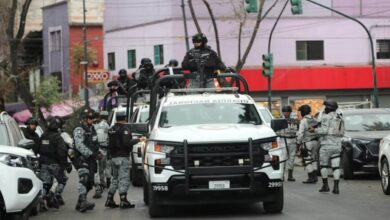Norway and its role as mediator in the Venezuelan crisis
Listen this article
With the recent confirmation of "preliminary contacts" with delegations of the opposition and the Venezuelan regime, Norway reaffirms its mediating role

Since January of this year, Venezuela has been the scene of all kinds of demonstrations, humanitarian concerts, military rebellions and even the liberation of political prisoners. Even so, none of these actions has achieved the main objective: to end the government of Nicolás Maduro. For this reason, as confirmed by Juan Guaidó the previous week on Twitter, other ways of solving the crisis have been sought with initiatives from the Lima Group to the Contact Group of the European Union.
Leer en español: Noruega y su papel de mediador en la crisis venezolana
Reiteramos:
Grupo de Contacto, Canadá, Reino Unido, Noruega, Grupo de Lima, ademas de otras iniciativas, nos apoyan para lograr una solución a la crisis. Para los venezolanos la ruta es clara y la mantenemos: cese de la usurpación, gobierno de transición y elecciones libres. pic.twitter.com/DJTiVsXGbg— Juan Guaidó (@jguaido) 15 de mayo de 2019
The previous statement came from the statement made by the Norwegian government on the official website of its Ministry of Foreign Affairs . It clarifies that "Norway reports that it has had preliminary contacts with representatives of the main political actors of Venezuela, in an exploratory phase, with the objective of supporting the search for a solution to the situation in the country." He also praises both parties "for their efforts". According to El Pais, "the meetings have been exploratory, to advance an agenda of topics and a working methodology" and also ensures that the dialogue table has not been created, since the talks of the Norwegian Foreign Ministry have been for separated with each delegation.
The reactions did not delay. On the side of the parties in question, Jorge Arreaza, minister of foreign relations of the ruling party, expressed "his gratitude and his support for the dialogue for Peace and Sovereignty". For his part, Juan Guaidó emphasized that contact through Norwegian mediation does not mean negotiation. In this regard, he affirmed in a video broadcast by DW that "Yes, there are some sent to Norway […] now, and I have also said it to the point of exhaustion, that we are not going to lend ourselves to any kind of false negotiation".
Aquí en inglés y español el Comunicado del Reino de Noruega sobre los avances del diálogo político en Venezuela. El Presidente @NicolasMaduro y la Revolución Bolivariana expresan su agradecimiento a Noruega y su apoyo al diálogo por la Paz y la Soberanía https://t.co/OmOD81GXy9
— Jorge Arreaza M (@jaarreaza) 17 de mayo de 2019
Juan Guaidó confirma que tiene enviados en #Noruega para un posible diálogo.
Pero el líder opositor enfatiza: "No nos vamos a prestar para ningún tipo de negociación falsa". @jguaido pic.twitter.com/VOICxPpl5O
— DW Español (@dw_espanol) 16 de mayo de 2019
As ALnavío recalls, the delegates sent to engage in dialogue are the following. On the side of the ruling party, is Hector Rodriguez, governor of Miranda, and Jorge Rodriguez, Minister of Communication. On the side of the opposition, the representatives are Stalin Gonzales, second Vice President of the National Assembly, Gerardo Blyde, ex-deputy, and Fernando Martinez Mottola, former minister.
Finally, dissenting voices have also been heard with this Norwegian mediation, mainly from Luis Almagro, president of the Organization of American States (OAS). In an interview with Infobae, Almagro criticized the Norwegian Chancellery for two reasons. The first is that Norway approaches both parties, as if it were a conflict, not like the dictatorship that it is. According to him, "it is a wrong approach, because this is not a matter of conflict between two parties, this is how one gets out of a dictatorship and how fundamental guarantees are returned to the people". The second point is that Norway, which is not a member of the European Union, has not recognized Juan Guaidó as interim president, which "does not really help, because you have to take the negotiations with Maduro saying 'you are not a legitimate president, you have to leave the power, you have to stop the usurpation. ' Ultimately, for him, "On the basis that Maduro is still a legitimate president, they will not solve the humanitarian crisis, the migration crisis, nor the systematic violations of human rights, but on the contrary, they will reinforce "
You may be interested: Venezuela: speculation and uncertainty
Norway and its fame as an international mediator
That Norway is one of the key countries in the possible peaceful exit between the ruling party and the Venezuelan opposition is not a coincidence. The Nordic country has a long tradition as a mediator in different conflicts not only in Latin America, but throughout the world. This happens mainly because of the 'neutrality' and international politics it handles.
The Prodavinci portal recounts the treatment that Norway manages as a mediator. Norway, based on its search for autonomy from other countries, has cultivated a "neutrality" based on the promotion of humanitarian values. This is what in the country they call a 'geopolitics of the weak', known there as a policy of commitment (engasjementspolitikken), which consists of the "promotion of humanitarian values, mediation and strong support for multilateralism". This policy focuses mainly on issues "of human rights, gender equity, environmental protection and climate change".
Thanks to these values of the commitment policy, Norway is recognized as a relevant actor in international negotiations and mediations. By the multiparty consensus around values, the Nordic country has gained "influence and prestige in the promotion of peaceful solutions to international conflicts".
The Nation remembers that some of the historical conflicts in which it has participated have been: the peace process between Colombia and the guerrilla group of the FARC, whose agreement was signed in 2016; the peace agreement of Guatemala signed in 1996 between the government and the armed revolutionary groups; the mediation between Palestine and Israel, which resulted in the signing of an agreement in 1993; the dialogues between Sudan and South Sudan since 2002, which resulted in the signing of an agreement in 2015, among others.
LatinAmerican Post | Juan Gabriel Bocanegra
Translated from "Noruega y su papel de mediador en la crisis venezolana"





